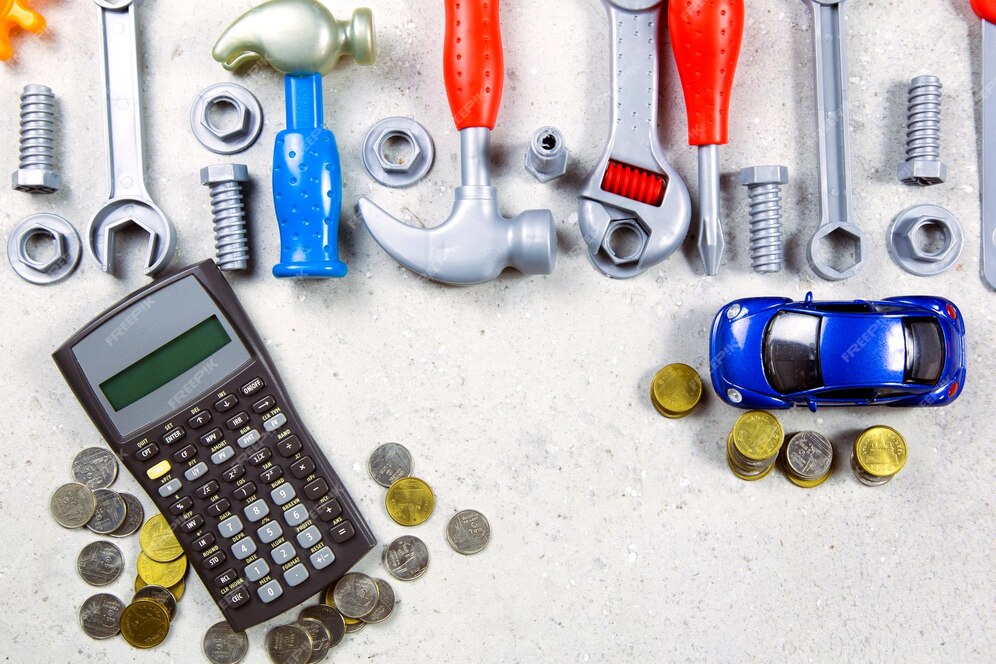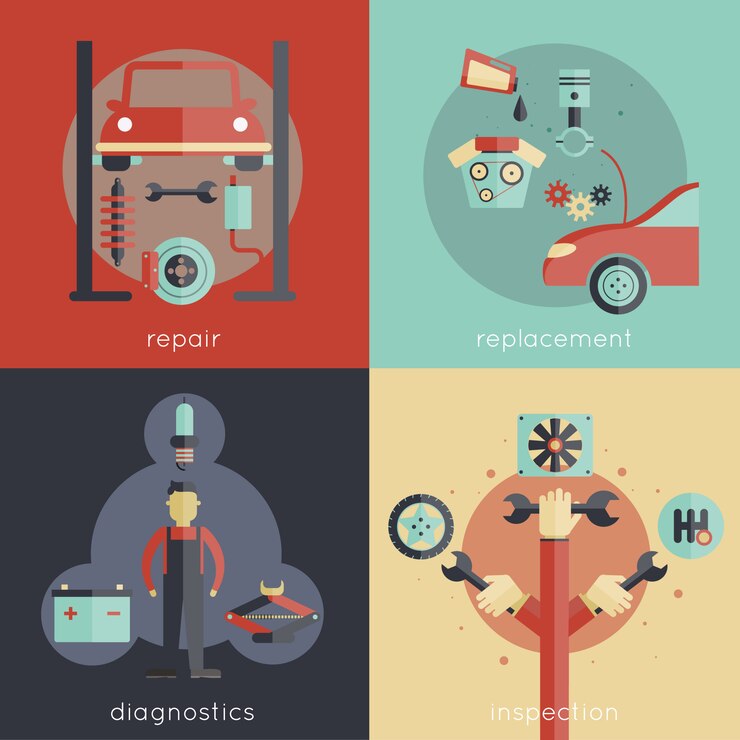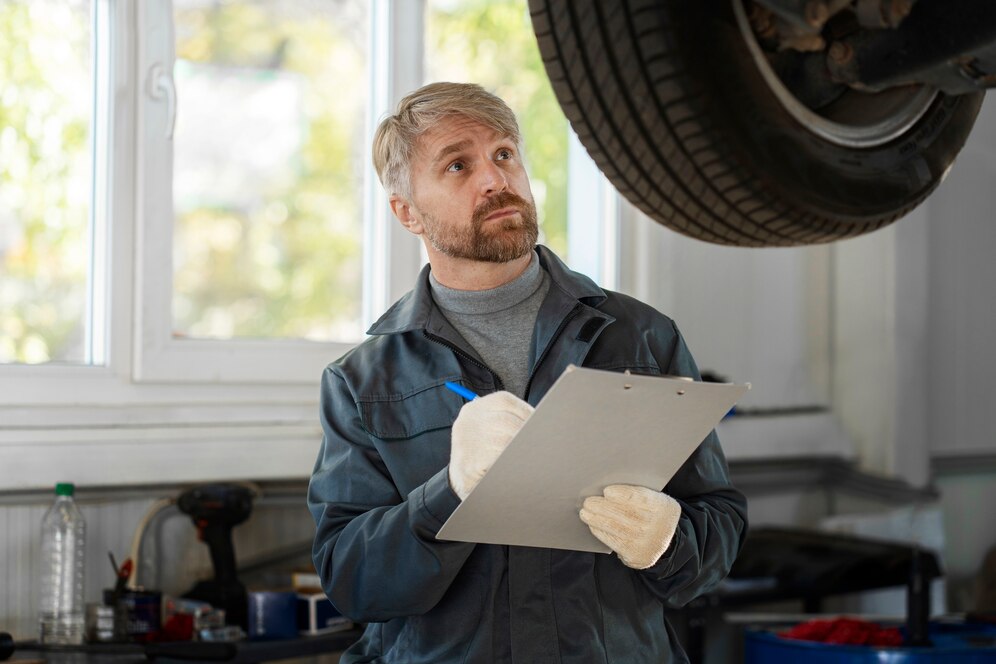introduction
The freedom and convenience that come with owning a car also come with the responsibility of maintaining and repairing it. Regular maintenance and timely repairs can save you from expensive breakdowns and improve the overall performance and lifespan of your vehicle. While professional help is sometimes necessary, many common car issues can be fixed at home with the right tools and knowledge. You can use this comprehensive guide to keep your car running smoothly and effectively by learning important auto repair tips.

Why Car Maintenance and Repair Matter
Safety: Regular maintenance lowers the likelihood of mechanical failure-related accidents. Regular maintenance is essential for a number of reasons. Cost Savings: Fixing minor issues early prevents them from turning into costly repairs later.Performance: A well-maintained engine, suspension, and transmission result in better fuel efficiency and smoother handling. Longevity: Routine maintenance increases the lifespan of your vehicle, helping you get more value over time.
Essential Tools for Car Repairs
Make sure you have the right tools on hand before you start any repairs. The following are some essential tools that every car owner should have:
Basic Hand Tools
Socket and Wrench Set For loosening and tightening bolts.Screwdrivers Flathead and Phillips) For handling various screws.Pliers For gripping and bending wires or metal pieces.
Diagnostic Tools
OBD2 Scanner for reading diagnostic codes from the vehicle’s computer. Multimeter for checking battery voltage and electrical issues.
Repair and Maintenance Tools:
Jack and Jack Stands For lifting the car safely.Tire Pressure Gauge For checking and maintaining proper tire pressure.Oil Filter Wrench For quick and easy oil changes.Brake Bleeder Kit For maintaining the brake system.
Common Car Repairs and How to Fix Them
One of the most crucial aspects of engine maintenance is performing routine oil changes.
How to Change Oil
Warm up the engine for a few minutes to thin the oil.Turn off the engine and place a drain pan under the oil pan.Remove the drain plug and let the old oil drain completely.Remove the old oil filter and install a new one.Reinstall the drain plug and refill the engine with new oil.Start the engine and check for leaks. Oil should be changed every 5,000 to 7,500 miles (or as the manufacturer recommends).
Replacing Air Filters
A dirty air filter can reduce engine performance and increase fuel consumption.Open the hood and locate the air filter housing.Remove the cover and take out the old filter.Insert a new filter and secure the cover. Recommended: Replace the air filter every 12,000 to 15,000 miles.
Checking and Replacing Spark Plugs
How to Replace Spark Plugs: Disconnect the battery and disconnect the spark plug wires. Remove the old spark plugs with a spark plug socket. Install new spark plugs and tighten them securely. Reconnect the spark plug wires. Recommended: Replace spark plugs every 30,000 to 50,000 miles.
Rotating Tires
Rotating your tires helps to ensure even tread wear, improving handling and extending tire life.How to Rotate Tires:Lift the car using a jack and secure it with jack stands.Remove the tires and rotate them according to the pattern in the owner’s manual.Reinstall the tires and tighten the lug nuts. Tire rotation is recommended every 5,000 to 7,500 miles.
Fixing a Flat Tire
A flat tire can leave you stranded if you’re not prepared to handle it.How to Fix a Flat Tire:Park the car on a flat surface and apply the parking brake.Loosen the lug nuts with a wrench.Use a jack to lift the car.Remove the flat tire and install the spare tire.Tighten the lug nuts in a star pattern. Tip: Always keep a spare tire and a jack in your car.
Troubleshooting Common Car Issues
Causes Dead battery,Faulty starter motor,Fuel delivery issues Solutions Check battery voltage with a multimeter.,Try jump-starting the car.,Check fuel levels and fuel pump function.
Overheating Engine
Causes Low coolant level, a defective thermostat, and radiator issues are the causesSolutions Check coolant levels and top up if needed.Inspect radiator hoses for leaks.,Replace the thermostat if necessary.
Braking Issues
Causes Worn brake pads,Low brake fluid,Warped rotorsSolutions Replace brake pads if worn down.,Check brake fluid levels and refill if needed.,Resurface or replace rotors if braking is uneven.
Unusual Noises
Causes Loose belts,Faulty bearings,Suspension issuesSolutions Tighten or replace belts.,Inspect wheel bearings for wear.,Check suspension components for damage.
Preventative Maintenance Tips
Staying on top of maintenance helps prevent breakdowns and extends the life of your car. Check tire pressure monthly and keep tires properly inflated. Clean the terminals on a regular basis and check the battery for corrosion. Wipers should be changed every six to twelve months. Check fluid levels (engine oil, coolant, brake fluid, transmission fluid) monthly Listen for strange sounds and address them early. Check alignment if the steering feels off or the car pulls to one side
When to See a Professional
While DIY repairs can save you money, some issues require professional attention: Transmission problems , Repairs can be complex and costly. Major engine problems frequently necessitate professional diagnosis and repair. Failures in the electrical system necessitate the use of specialized tools frequently. Suspension and steering problems ,Incorrect handling can compromise safety.
Safety Tips for Car Repairs
When working on your car, safety should always come first. Use the parking brake and park on a level surface. Use jack stands to secure the car and never rely on the jack alone. To safeguard both your eyes and hands, wear safety glasses and gloves. When you are working on electrical systems, disconnect the battery. Keep a fire extinguisher nearby when handling fuel or oil.

Conclusion
Maintaining and repairing your car doesn’t have to be complicated. By following these essential car repair tips, you can handle most common issues on your own, save money, and keep your vehicle running at its best. Regular maintenance not only improves performance but also ensures safety and extends the lifespan of your car. Start small, build confidence, and soon you’ll be handling even complex repairs with ease!

